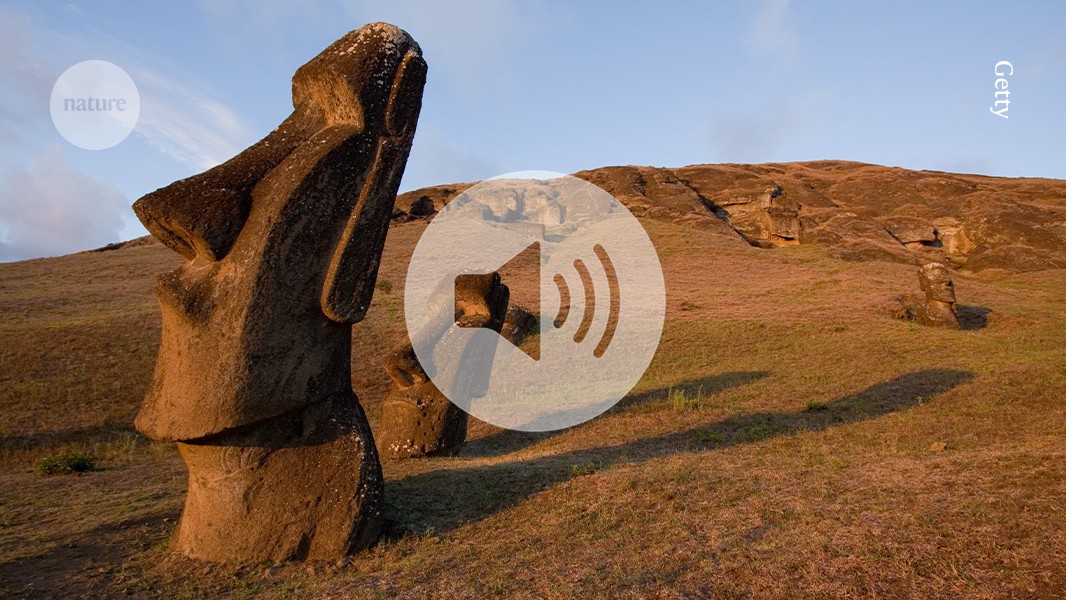Download the Nature Podcast 11 September 2024
In this episode:
00:45 What ancient DNA has revealed about Rapa Nui’s past
Ancient DNA analysis has further demonstrated that the people of Rapa Nui did not cause their own population collapse, further refuting a controversial but popular claim. Rapa Nui, also known as Easter island, is famous for its giant Moai statues and the contested idea that the people mismanaged their natural resources leading to ‘ecological suicide’. Genomes sequenced from the remains of 15 ancient islanders showed no evidence of a sudden population crash, substantiating other research challenging the collapse idea.
Research Article: Moreno-Mayar et al.
News and Views: Rapa Nui’s population history rewritten using ancient DNA
News article: Famed Pacific island’s population ‘crash’ debunked by ancient DNA
17:03 Research Highlights
The extinct bat-eating fish that bit off more than they could chew, and how manatee dung shapes an Amazonian ecosystem.
Research Highlight: Ancient fish dined on bats — or died trying
Research Highlight: The Amazon’s gargantuan gardeners: manatees
19:29 A macabre parasite of adult fruit flies
Despite being a hugely studied model organism, it seems that there’s still more to find out about the fruit fly Drosophila melanogaster, as researchers have discovered a new species of parasitoid wasp that infects the species. Unlike other parasitic wasps, this one lays its eggs in adult flies, with the developing larva devouring its host from the inside. The minuscule wasp was discovered by chance in an infected fruit fly collected in a Mississippi backyard and analysis suggests that despite having never been previously identified, it is widespread across parts of North America.
Research article: Moore et al.
32:04 Briefing Chat
How a dye that helps to give Doritos their orange hue can turn mouse tissues transparent, and an effective way to engage with climate-science sceptics.
Nature News: Transparent mice made with light-absorbing dye reveal organs at work
Nature News: How to change people’s minds about climate change: what the science says
Never miss an episode. Subscribe to the Nature Podcast on Apple Podcasts, Spotify, YouTube Music or your favourite podcast app. An RSS feed for the Nature Podcast is available too.


